OPINION
Nigeria’s Democracy, 20 Years After: Where lies the Hope of the Poor?
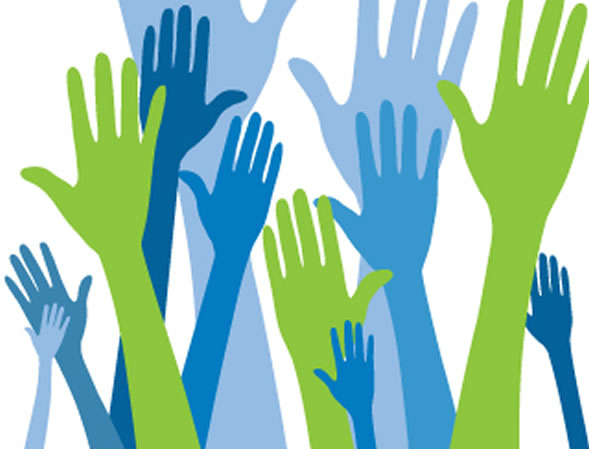
By Menyanga Abu
Democracy according to Yusuf Bangura ,is a system of government in which leaders periodically renew their mandates through free, fear and competitive elections. It is a system that acknowledges the right of expression, organization and collective actions of the populace.
These rights grant the citizens the powers to exercise political choice and
to hold leaders accountable for their actions, inactions, decisions and indecisions as the case may be.
Democracy is considered as a powerful tool for meeting people’s aspirations as well as making them partners in decisions that affect their well-being. Functional and sincere democracy will alleviate poverty but where democracy becomes a charade – a capitalist tool or feudal instrument or an authoritarian institution, – it will end providing lip services.
That is a situation where overriding forces manning a sort of pseudo-democratic formations benefit themselves by exploiting the poor. No doubt, democracy in Nigeria has been elevated in public policy. I think we are yet to understand the type of politics and institutions that will make democracy to achieve growth and human wellbeing. Although our democratic process is participatory in outlook, it tends to be limited to few elected people without the involvement of such people like the informal workers, the artisans or the famers whose livelihood are directly affected by many of the development policies.
For democracy to add values to the lives of the poor masses and economic growth, every democratic practice should put economic liberty and transparency on a par with every other democratic value such as regular elections, rule of law, human rights, freedom of association and speech. For the poor to feel the positive impacts and benefit from democracy, I appeal to the present administration and its agencies not to use superfluities and rhetoric of democracy as a façade while behind the scenes engaging in rent-seeking practices that can lead to systemic entrenchment of corruption as done by the past administrations.
The corrupt system will easily provide avenues for politicians to use political powers for economic gains and the economic gains could be used for buying political influence. In such a situation democratic dividends hardly reach the general populace.
This usually results in persistent poverty among a large percentage of the population coupled with poor social services in struggling and developing democracy like ours. The situation above can lead to declining in supports for democracy by the populace at large and may signify real threat to democracy because impoverished poor masses may not have the necessary tools to fight back and in most cases they are not familiar with/use to demanding government’s accountability and responses.
Democracy can never be sustained without persistent efforts to eliminate poverty and vice versa. Strengthening democratic governance is an indispensable component of the efforts to alleviate poverty.
Poverty is a big threat to democracy as it tends to deprive people of their political voices, preventing them from holding their government accountable and responsive thus eroding public trust in democratic institutions. Democracy can deliver outcomes that will be beneficial to the poor only if,
(1) the rights of the people are institutionalized that will allow the poor to exercise political choice, build alliance with others and hold leaders to account
(2) groups with strong ties to the poor develop capacity for independent organization and mobilization as well as reconciling horizontal decisions and establishing structural links with the policy makers – social pacts – and
(3) lastly if there is high likelihood that the sitting government may likely lose office which can serve as incentives for redistribution. It is believed in some circles that electoral competitiveness can produce redistributive outcomes but competitiveness without effective organization and contestation may
produce weak redistributive outcomes.
Reducing poverty needs power relations at the nucleus of development, as such any strategy put in place to reduce poverty and inequality must consider tipping the balance of power. Eradicating poverty requires an expansion of the bargaining power of the poor masses and those who might represent them.
1999 marked the foundation of the longest continuous democratic governance in the history of Nigeria after her independence in 1960.
Democracy, as expected and believed by many Nigerians supposes to provide the citizens with that opportunity to participate in governance which in turn promotes development. But the said democratic government seems to be working against the aspirations and interests of the poor masses because of the way the democratic system is being operated coupled with corruption in this part of the world.
Take a survey of our National Assembly for example, the Assembly is a major democratic institution in any functional democratic setting, but today
our representatives are not reflecting our views, take less of reflecting our modest lifestyle who they claimed they are representing. Many of them own about four to seven exotic cars, each costing not less than twenty five to two hundred and fifty million naira in a country where about 130 million people out of the estimated 180 million are living in abject poverty and misery.
The irony of the whole thing is that, back in their villages, their closest neighbours and relatives are struggling to get some pieces of tiny tilapia fish (ibobo) of barely one hundred naira (N100) per a set of three or four just to give taste to their soups and not enough to eat. Yet these are the honourable members representing our interest that most cases pay us money to vote them to serve us. Nobody is asking why they should pay us for them to offer us services.
These show that these political elites have different motives that contradict the interests and aspirations of the general populace especially the poor masses. What I have observed in Nigeria today is that, that principle of value we cherished in the past no longer matter to our political elites as they can always use their ill-gotten money to get to public offices by buying the conscience of the poor masses. The highest bidders have takes on whatever is on the table.
The biggest enemy of democracy is poverty because when people are poor, they are in most cases reduced to destitute and a little money can change their minds. In such a situation that freedom of choice which is one of the beauties of democracy could be taken away from the poor masses by those who control the resources. Nigeria has no business with poverty because God has so blessed this nation with abundant resources.
We thought that with the advent of democracy in 1999, the gateway to development has been opened and bye to poverty sand misery. Little did we know that democracy as practiced in Nigeria is a gateway to corruption, individual enrichment resulting in abject poverty and misery instead of general development.
Democracy which is government of the people by the people for the people has tuned to government of the selected rich by the rich for the selected rich. Democracy to our political elites has come to mean government of the rich, making the rich richer and making the poor poorer. The permanent features of our democracy as experienced today are abject poverty and misery.
The first sixteen years of democratic governance in Nigeria was a complete
wastage though with some pockets of achievement that is nothing to write home about. Those years were marked with unprecedented corruption and wanton stealing of our common wealth by those entrusted with power. What we are experiencing today are no doubt the cumulative effects resulting from those years of mismanagement.
For example, sixteen billion dollars was said to have been spent on electricity provision, but where and what is the situation of power in Nigeria today and how was this huge amount spent, may be the details, as we are told are in a book written by one of our leaders. According to Brooking institute – 2018 world poverty clock – about 643 million people across the world are living in extreme poverty, which is below 1.9 dollars, about 540 naira per day. Out of this number, two third – about 428.7 million – of this population is from Africa.
On 26th June 2018, CNN reported that Nigeria is the new poverty capital of the world after overtaking India with an estimated number of 87 million
Nigerians extremely poor. We all know that the divine forces that drive democratic government to deliver anti-poverty outcomes are complex, but that does not mean that a functional democratic government cannot dismantle these complexities to provide the dividends of democracy to the poor masses that are always at the receiving end.
But then this takes time. Let us support the present administration in the fight against corruption and other of its programmes to bring about even development. I want to point out here that our problem as a country is most times the illusionary belief that we could change Nigeria over night by simply voting a different president into power believing that our problems start and stop with the president.
We tend to think that if we could just have the right person in power, then all of a sudden our numerous problems and Nigeria will be transformed forgetting that the person we are bringing as a new president comes from within Nigerian society and not from the moon or another angelic world or outer-space.
Nigeria’s problem is not just only the man in power but all Nigerians, our shared values and mentalities. Systemic rot and Nigerians are Nigeria’s problems and any day we realize this, we will no doubt get closer to finding solution to our complex problems.
The increasing level of poverty witnessed in Nigeria today results from many-sided problems that are traceable to our political elites/past leaders as well as us the followers because a country cannot good better leaders until it has better people.
Democratization in this country is often contested by the rich who sees it as a process or an avenue for making/stealing money and not for general development. To them democracy is viewed as a battle not of parties but of class and struggle between property and mere numbers.
This phenomenon is making democratization to lose its links between the political parties and broad social movements that define the interest of the poor. Poverty is on the rise as a result of failure of developmentalism; development in democratic setting according to Yusuf Bangura requires high level of continuous mobilization by political elites with development project who are ready to embrace open-led strategies of industrialization.
Any democracy without concerns for the welfare/wellbeing of the poor masses can never be said to be quasi-democracy no matter the colouration of the electoral processes and procedures.
Poverty alleviation in a democratic setting requires expansion of the bargaining power of the poor and those that represent them.
Menyanga Abu, is an Abuja-based Health System and Development Consultant.
OPINION
A silent Emergency: Soaring Costs of Diabetes Care Spark Alarm

By Folasade Akpan
For Mrs Schola Effiong, a 58-year-old confidential secretary in Calabar, managing diabetes in today’s economy feels like “climbing a hill that only gets steeper”.
Diagnosed in 2009, she said her monthly expenditure on insulin, tablets, laboratory tests and monitoring supplies now exceeds ₦150,000.
“You cannot stop taking the drugs, yet the cost keeps going up.
“Sometimes I do not have the money to buy some of them at the same time,” she said.
Her struggle mirrors the experiences of thousands of Nigerians at a time when experts warn that diabetes is becoming a major public health concern.
According to a 2018 national meta-analysis by Uloko et al.
, titled “Prevalence and Risk Factors for Diabetes Mellitus in Nigeria: A Systematic Review and Meta-Analysis”, Nigeria’s diabetes prevalence stands at 5.7 per cent, representing 11.2 million adults.The authors defined diabetes mellitus as a metabolic disorder of chronic hyperglycaemia caused by absolute or relative insulin deficiency and associated with disturbances in carbohydrate, protein and fat metabolism.
The study, which pooled data from numerous research works across the country, revealed wide regional disparities.
The prevalence rate was 3.0 per cent in the North-West, 5.9 per cent in the North-East, and 3.8 per cent in the North-Central, respectively.
The rates were higher in the southern part of the country: 5.5 per cent in the South-West, 4.6 per cent in the South-East, and 9.8 per cent in the South-South.
Experts say these patterns reflect changing lifestyles, rapid urbanisation and limited access to routine screening.
However, for many patients, statistics tell only a fraction of the real story.
Mr Offum Akung, a 57-year-old teacher in Cross River, said he had to ration his drugs because prices kept rising faster than his salary.
“I spend over ₦40,000 a month and still cannot buy everything on my prescription.
“I rely mostly on Glucophage now; when money allows, I add Neurovite Forte; diabetes management has become more difficult than the disease itself,” he said.
He appealed for government intervention, saying many patients were already “giving up”.
The Second Vice-President of the Diabetes Association of Nigeria, Mr Bernard Enyia, said the economic situation had pushed many Nigerians with diabetes into dangerous coping methods.
He said that he once managed his condition with about ₦70,000 monthly, but currently spends more than ₦180,000.
“Insulin has become something you pray for, while some people are sharing doses or skipping injections.
“Once you break treatment, the complications come quickly.”
Enyia, who lost his job as a health worker in 2017 due to frequent hospital visits, described the emotional toll as immense.
“It affects your finances, your social life, your marriage — everything. Many Nigerians with diabetes are quietly drowning,” he said.
Globally, concerns are also rising.
The World Health Organisation (WHO) estimates that more than 24 million adults in Africa are living with diabetes, a figure projected to rise to 60 million by 2050.
Marking World Diabetes Day 2025, WHO Regional Director for Africa, Prof. Mohamed Janabi, warned that rising obesity, lifestyle changes and weak health systems were fueling an “unprecedented wave of diabetes” across the continent.
He urged governments to prioritise access to affordable insulin, diagnostics and long-term care.
More so, pharmacists say they are witnessing the crisis firsthand.
The Senior Vice-President, Advantage Health Africa, Mr Adewale Oladigbolu, said many patients were no longer able to maintain regular medication schedules.
“People buy drugs today and skip them tomorrow because they do not have money.
“With non-adherence, they never reach therapeutic goals.”
Oladigbolu, a Fellow of the Pharmaceutical Society of Nigeria, said that locally manufactured metformin remained in high demand due to affordability, but insulin-dependent patients faced the harshest burden.
He stressed that diabetes care extended far beyond drugs.
“You need glucometers, strips, blood pressure monitors and regular tests.
“In countries where insurance work, patients do not think about the cost; in Nigeria, they pay for everything out of pocket,” he said.
He called for diabetes care to be covered under health insurance to reduce the financial burden on patients.
President of the Diabetes Association of Nigeria, Prof. Ejiofor Ugwu, described the rising cost of treatment as “a national crisis hiding in plain sight.
He said insulin, which sold for about ₦3,500 four years ago, presently costs ₦18,000 to ₦22,000 per vial.
“Test strips that were ₦2,000 now sell for ₦14,000, while glucometers have risen from ₦5,000 to over ₦25,000.
“On average, a patient now needs between ₦100,000 and ₦120,000 every month. Imagine earning ₦50,000 and being asked to spend twice that on one illness.”
He warned that between half and two-thirds of Nigerians with diabetes remain undiagnosed.
“We are seeing more kidney failure, more limb amputations, more blindness.
“These are late presentations caused by delayed or inconsistent treatment.”
Ugwu urged the Federal Government to urgently subsidise essential anti-diabetic medications and remove taxes on their importation.
“Most of these drugs are produced outside the country.
“Once you add import duties and other charges, prices become unbearable; subsidies and tax waivers could drop costs by at least 30 per cent,” he said.
He also called for expansion of the National Health Insurance Authority (NHIA) to cover a wider range of anti-diabetic medicines, glucose meters and strips — none of which are currently covered.
For many Nigerians, however, the struggle continues daily.
Across households, clinics and pharmacies, the message is the same: as Nigeria’s diabetes prevalence rises and treatment costs soar, more patients are slipping through the cracks — some silently, others painfully — while waiting for meaningful intervention.
In all, stakeholders say diabetes is a national emergency; people are dying quietly because they cannot afford medicine; hence the urgent need for relevant authorities to make anti-diabetic medications accessible and affordable.(NAN)
| ReplyReply allForwardAdd reaction |
OPINION
Is Community Parenting Still Relevant?

By Dorcas Jonah
In the Nigerian culture, extended families and communities play a crucial role in care-giving, instilling values, and supporting the development of children.
This cultural heritage of community parenting emphasises shared responsibility in raising children.
But in contemporary Nigeria, this age-long practice is facing enormous challenges due to modernisation.
In scrutinising this trend, some parents are of the view that community parenting helps in instilling morals and curbing social vices among children and youths, while others believe it is outdated.
Some parents are of the belief that their children are their responsibility; so they do not tolerate others correcting their children.
By contrast, others say that community parenting, when done with good intentions, can help raise a better society.
Mr Peterson Bangyi, a community leader in Dutse Makaranta, said that community parenting was the bedrock of raising a child.
He said the adage: “it takes a village to raise a child”, remained a powerful principle in contemporary society.
According to him, by Nigeria’s cultural norms and values, a child is owned by everyone; therefore, the grandparents, aunts, uncles, and neighbours actively contribute to raising children.
“This approach fosters a sense of belonging and ensures children grow up with diverse role models.”
Bangyi said that the extended families practiced by more communities were the backbone of parenting.
“But modernisation has taken away this practice as most families do not want people to come close to their children,’’ he said.
Mrs Monica Umeh, a mother of two, emphasising on the importance of community parenting, said that it played significant role in shaping her upbringing as a child and young adult.
Umeh advised that when correcting other people’s children, it is essential to do so with love and good intentions, without any form of bitterness.
“I am a strong advocate of community parenting as long as it is done with love and good intentions.
“I believe no parent can single-handedly raise a child without the support of others,’’ he said.
Mr Temitope Awoyemi, a lecturer, said that community parenting was crucial and could not be over-emphasised.
He said that community parenting helped society in inculcating strong moral values in children and youths, adding that modern life could be isolating for parents.
Awoyemi said that strong community support networks had been shown to lower parental stress levels and promote a more optimistic approach to raising children.
“It also ensures that a child receives guidance and correction from various adults, providing a broader, more consistent moral and social baseline that might be missed by parents who are busy with work.
“Community parenting encourages collaborative, interdisciplinary support from various community members and agencies in addressing a child’s developmental needs comprehensively.
“It focuses on prevention of long-term problems and celebrating individual strengths,’’ he said.
Awoyemi said that as the society continued to evolve, community parenting could adapt to ensure children benefitted from both cultural roots and contemporary innovations.
Mr Fortune Ubong, a cultural enthusiast, attributed the increasing crime rate in Nigeria to lack of community parenting that had extended to schools, and government institutions.
According to him, community parenting remains the foundation of every child’s moral upbringing.
“Most parents are now focused on earning a living and improving their lifestyle, in the process abandoning their primary duty of molding and guiding their children; this is where community parenting plays a greater role,” he said.
However, Mrs Joy Okezia, a businesswoman, said that given the recent developments in the country, correcting a child should be the sole responsibility of their parents.
Okezia said that she preferred to correct her children herself as she knew them better than anyone else.
She also noted that with the rising insecurity in the country, intervening to correct a child could pose a significant risk to the person.
Mrs Ijeoma Osita, a civil servant, also shared Okezia’s view, saying that a child’s behaviour was shaped by their family upbringing.
She said that if a child was not taught to love and respect others at home, an outsider would have little impact in correcting such a child.
Osita emphasised that parents should in still in their children the values of love and respect regardless of their status or background.
According to her, a child brought up with good values is less likely to misbehave well.
She cited the Holy Bible, saying, that says: “Train up a child in the way they should go, and when they are old, they will not depart from it’’.
Osita said that community parenting remained a vital aspect of Nigerian culture, promoting shared responsibility and resilience among families.
He opined that while modernisation posed challenges, blending traditional practices with modern strategies offered a promising path forward.
Observers say robust community connections are linked to better social-emotional development, academic achievement, and overall well-being for children.
They say that in modern society, amidst the digital world, economic instability, and busy work schedules, parents face pressures, making community support systems fundamental.
All in all, stakeholders are of the view that combining traditional community parenting with modern childcare – integrating technology, play-based learning, and skill acquisition – will produce well-rounded children.(NAN)
FEATURES
Victor Okoli: The Young Nigerian Tech Founder Building Digital Bridge Between Africa and America

Victor Chukwunonso Okoli, founder of Vnox Technology Inc. (USA) and Vnox Limited (Nigeria), is steadily emerging as one of the most promising new voices in global travel-tech. His mission is clear: bridge the technological gap between Africa and the United States, redefine global travel systems, and empower a new generation of skilled youths through innovation-driven opportunities.
In a statement issued in Onitsha, Anambra State, by Vnox Limited (Nigeria), the company emphasized Okoli’s growing influence as a Nigerian international graduate student contributing meaningfully to U.
S. innovation. His rising travel-technology platform, FlyVnox, currently valued at an estimated $1.7 million, is positioning itself as a competitive player in the global travel ecosystem.Okoli explained that Vnox Technology was founded to “train, empower more youths, create global employment opportunities, and drive business growth through our coming B2B portal inside the FlyVnox app.” The platform’s new B2B system aims to support travel agencies, entrepreneurs, and businesses across Africa and the diaspora—giving them access to modern tools, previously inaccessible technologies, and global opportunities.
Several young men and women are already employed under the expanding Vnox group, with more expected to join as the brand grows internationally.
Born and raised in Eastern Nigeria, Okoli’s early life exposed him to the realities and frustrations faced by international travelers and diaspora communities. After moving to the United States for graduate studies, he transformed those experiences into a bold technological vision—building systems that connect continents and create seamless mobility for users worldwide.
At the center of that vision is the FlyVnox app, a modern airline-ticketing platform built with global users in mind. Combining American engineering precision with African mobility realities, FlyVnox offers international flight search, multi-currency support, secure payments, transparent pricing, and a clean, intuitive interface.
Beyond FlyVnox, Okoli has built a growing tech ecosystem under Vnox Technology Inc., which oversees several innovative ventures, including: Vnox TravelTech Solutions LLC (FlyVnox App), VnoxPay (fintech), VnoxShop / Zyrlia (e-commerce)
VnoxID / Nexora (digital identity and smart business card solutions)
Vnox Limited (Nigeria) anchors African operations, media services, and talent development—ensuring the brand remains rooted in its home continent even as it grows globally.
Okoli’s work has broad significance for both Africa and the United States. He represents the powerful impact of immigrant entrepreneurship on global competitiveness—creating new jobs, driving innovation, strengthening U.S.–Africa commercial ties, and contributing to the development of practical, scalable technologies.
The statement concludes that Vnox Technology is a brand to watch. As FlyVnox gains international traction and the Vnox group expands its footprint, Victor Okoli stands as a symbol of a rising generation: African-born, globally minded, and building technologies that connect and serve the world.






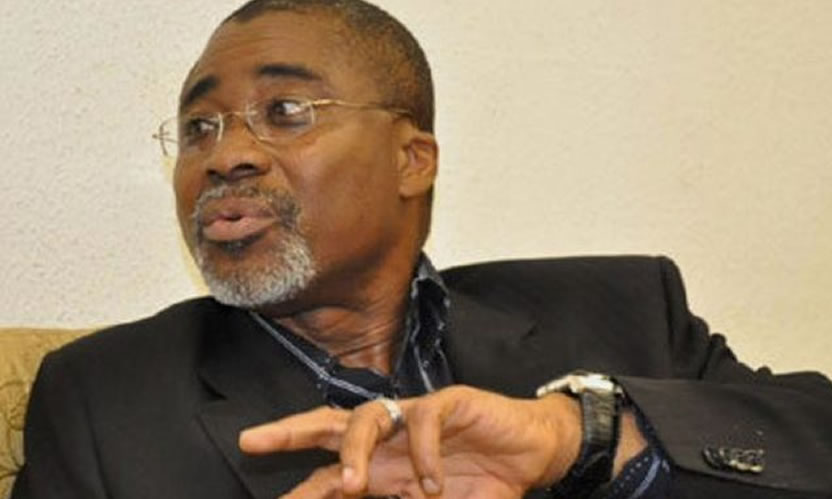


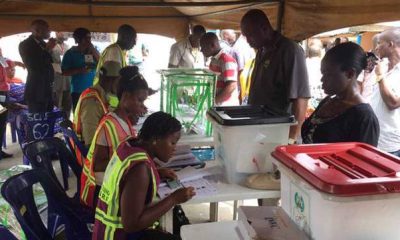


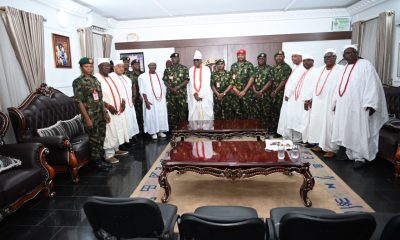





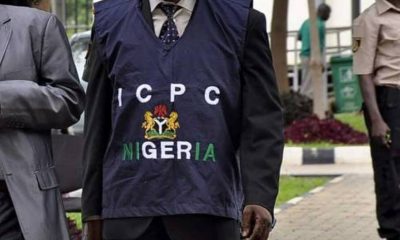

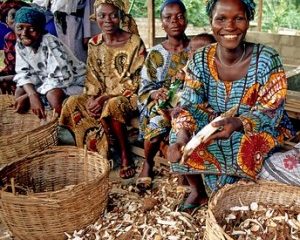



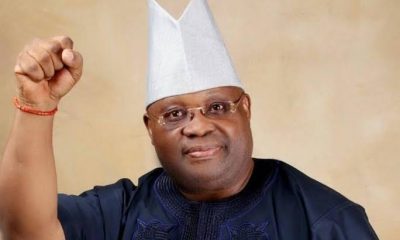





1 Comment